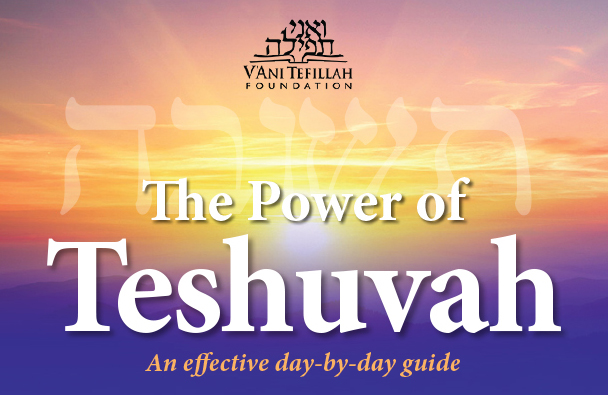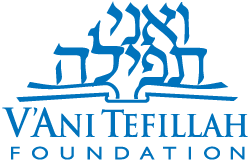The Power of Teshuvah – Day 8

Day 8
Teshuvah With Love
If teshuvah were able only to undo the damage we have done, and open our lives to Hashem’s blessings, that would seem to be miraculous enough. However, it does so much more. It not only erases the misdeed, but also enables our relationship with Hashem to be much closer than ever.
However, not all teshuvah can accomplish this remarkable loving closeness to Hashem. There are two distinct types of teshuvah: teshuvah mi’yirah, which is teshuvah from fear of punishment; and teshuvah mei’ahavah, teshuvah from love of God.
Teshuvah mi’yirah is considered a lesser level of teshuvah, because if not for the punishment, the person would not repent. Such teshuvah can expunge our sins, but it does not bring us into the same loving relationship with Hashem as does teshuvah mei’ahavah.
“Achas sha’alti mei’eis Hashem, osah avakeish. Shivti b’veis Hashem kol yemei chayai …One thing I asked of Hashem, this I shall seek: That I dwell in the House of Hashem all the days of my life.”
This verse from L’David Hashem Ori, recited from the first day of Elul through Shemini Atzeres, encapsulates every Jew’s simple but profound yearning to attain that loving relationship. God’s Name appears thirteen times in L’David Hashem Ori, for during this period, the thirteen gates of rachamim, of mercy and compassion, are open to us.
Hashem’s Thirteen Attribute of Mercy is limitless, therefore we should never worry or wonder whether our sincere teshuvah will be accepted, thereby bringing forgiveness for our sins and drawing us closer to God. Our teshuvah reaches up to an omnipotent God, Whose compassion has absolutely no limits or boundaries. It is no wonder that teshuvah is considered “among Hashem’s kindnesses to His creations.”
Hashem’s “Thirteen Attributes of Mercy” bear witness to the many ways in which He awaits our teshuvah. Contemplation of each of the Attributes — ‘‘Hashem, Hashem, God, Compassionate (before one sins and after); and Gracious; Slow to anger; Abundant in Kindness and Truth; the Preserver of Kindness for thousands of generations; Forgiver of iniquity, willful sin, and inadvertent sin, and Who absolves” — elicits an awareness of all He has done, does, and will do for us.
God revealed His Thirteen Attributes of Mercy to Moshe Rabbeinu, to place this crucial key to attaining forgiveness in our hands. In giving us all of these tools and opportunities to do teshuvah, Hashem’s undeniable message is that He desires a loving relationship with us.
All of this compassion flows to us even though we have utilized the very gifts Hashem gives us to commit sins. He grants us intelligence, strength, vitality, creativity, money, and health, and we use these to pursue our own misguided objectives. Not only do we do this, but we repent, and then do it again. Nevertheless, so deep is Hashem’s desire for closeness to us that He continues to wait for the awakening of love that will overflow its banks and carry us to teshuvah.
The desire to do teshuvah mei’ahavah arises when we realize that we have “disappointed” our beloved Father, and are overwhelmed with a longing to reconnect with Him. This renewed surge of love nullifies the damage that our sins have generated. Thus, intentional sins are not only erased, they are turned into merits.
This lofty level of teshuvah is accessible to each of us, because it emanates from the pintele Yid, the indelible spark of Jewishness that embodies the “tzelem Elokim” within the deepest recesses of our souls. This heartfelt penitence has the power to turn willful, premeditated transgressions into mitzvos, thereby completely cleansing the soul and enabling us to obtain the greatest benefit of teshuvah: the joy of coming ever closer to Hashem.
Points to Ponder:
-
-
- True teshuvah atones for sin, but its intrinsic purpose is to draw us even closer to Hashem.
- Teshuvah mi’yirah erases our sin; teshuvah mei’ahavah turns sins into merits.
- One’s love and longing to draw nearer to Hashem generates additional merit.
-

